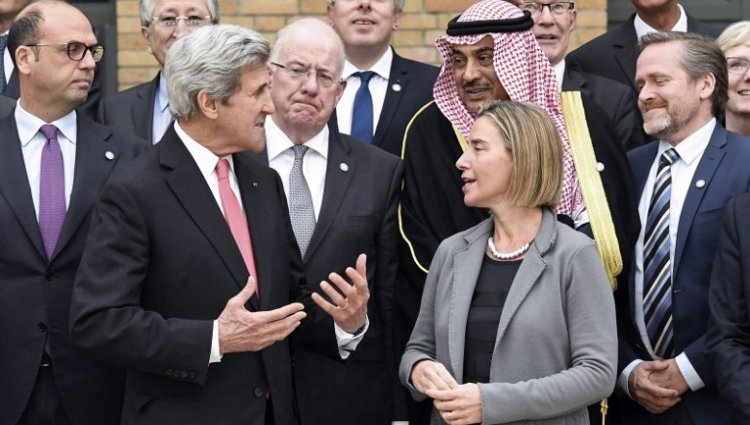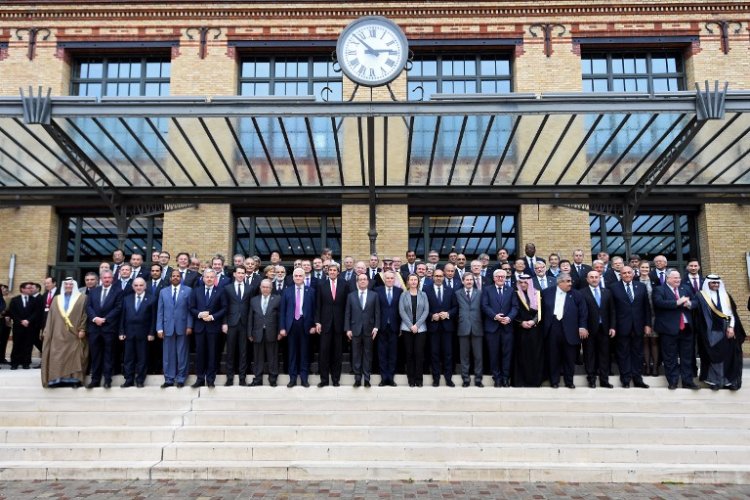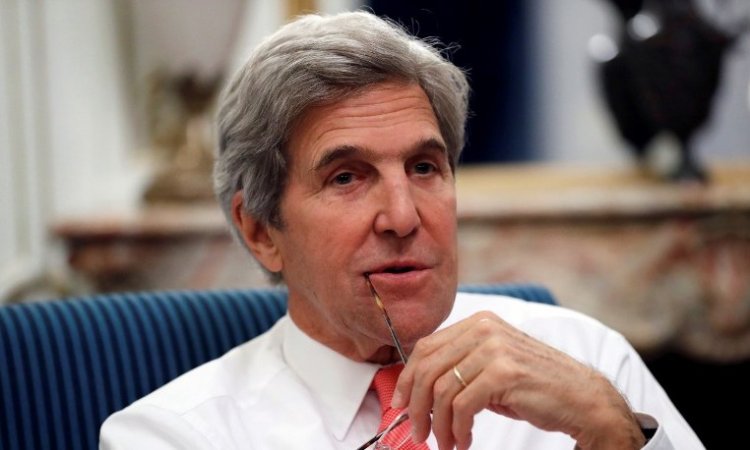Paris peace conference declares: No
"acceptable" solution except two states
By Times of Israel Staff | Times of Israel | January 15, 2017

US Secretary of State John Kerry (L) speaks with European Union Foreign Policy Chief Federica Mogherini (R) as they take part
with other foreign ministers and representatives in a Mideast peace conference in Paris on January 15, 2017. (AFP PHOTO /
POOL / bertrand GUAY) |
Over 70 participants in the Paris peace initiative stressed the need for a two-state solution and rejected any unilateral moves by Israelis or Palestinians to prejudice a final peace deal.
In a joint declaration at the conclusion of the conference Sunday, the countries' representatives restated that a two-state solution is the only one acceptable to the international community and called on both sides to act accordingly.
The participants "reaffirmed that a negotiated solution with two states, Israel and Palestine, living side by side in peace and security, is the only way to achieve enduring peace."
"They emphasized the importance for the parties to restate their commitment to this solution, to take urgent steps in order to reverse the current negative trends on the ground, including continued acts of violence and ongoing settlement activity, and to start meaningful direct negotiations," the declaration said.

Officials pose for a group photo during the Mideast peace conference in Paris on January 15, 2017 (AFP PHOTO / POOL /
Bertrand GUAY) |
The participants also stressed the need for the final peace deal that would give full statehood to Palestinians while satisfying Israel's security needs.
"A negotiated two-state solution should meet the legitimate aspirations of both sides," the statement read, "including the Palestinians' right to statehood and sovereignty, fully end the occupation that began in 1967, satisfy Israel's security needs and resolve all permanent status issues on the basis of [the relevant] United Nations Security Council resolutions."
The conference discussed the situation in Gaza and participants "noted the importance of addressing the dire humanitarian and security situation in the Gaza Strip and called for swift steps to improve the situation."
Furthermore, the participants urged both Israelis and Palestinians to "comply with international law, including international humanitarian law and human rights law."
The final statement referenced the Arab Peace Initiative of 2002 and the United Nations Security Council Resolution 2334, which "clearly condemned settlement activity, incitement and all acts of violence and terror, and called on both sides to take steps to advance the two-state solution on the ground," as well as "the recommendations of the Quartet on 1 July 2016 and the United States Secretary of State's principles on the two-state solution on 28 December 2016."

US Secretary of State John Kerry speaks with the media following the Mideast peace conference in Paris on January 15, 2017.
(AFP PHOTO / POOL / Alex Brandon) |
The participants offered to help in any final status deal. They offered closer economic cooperation and "a European special privileged partnership" as well as "continued financial support to the Palestinian Authority."
They offered to help in "supporting and strengthening Palestinian steps to exercise their responsibilities of statehood through consolidating their institutions and institutional capacities, including for service delivery," and also to act as facilitators for future meetings between the Israelis and Palestinians.
The statement also called upon both sides to take practical steps "to officially restate their commitment to the two-state solution," and to demonstrate "through policies and actions, a genuine commitment to the two-state solution and refrain from unilateral steps that prejudge the outcome of negotiations on final status issues, including, inter alia, on Jerusalem, borders, security, refugees and which they will not recognize."


